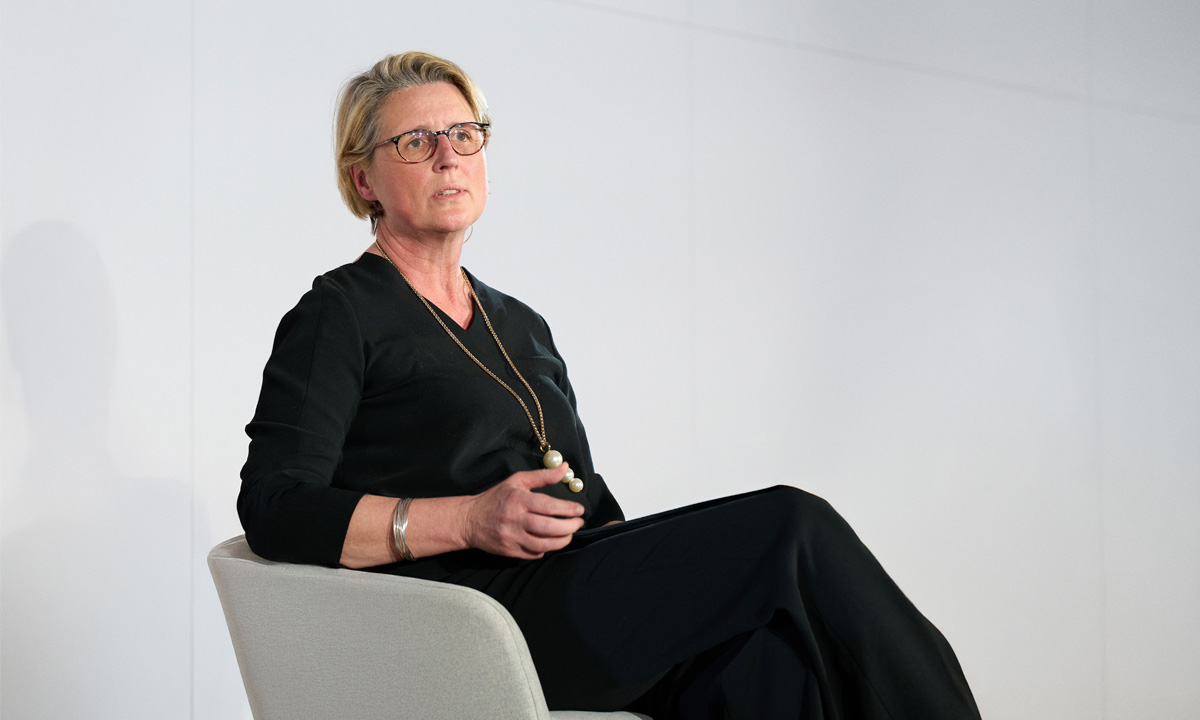At a time of growing trade uncertainty and geopolitical risk, priorities around energy are shifting. There is movement toward increasing oil and gas production in the United States while countries in the European Union remains committed to net zero goals even as they struggle with higher energy costs.
In this environment, Catherine Vandenborre aims to be a bridge builder. As chief financial officer (CFO) of Belgian electric grid operator Elia Group, she is helping oversee the company’s entry into the US market by investing $400 million for a 35% stake in renewable power producer and developer energyRE. At the same time, Elia is investing heavily in the company’s European grid to meet growing demand for green energy and reduce reliance on imports, one of the key lessons EU countries have drawn from the Ukraine war.
“It's not a question of reducing CO2 emissions anymore,” she said. “It's really a question of sovereignty.”
Vandenborre spoke recently with Oliver Wyman Forum Partner Rupal Kantaria in Paris.
We've seen many companies reconsidering their commitments to energy transition. How are you navigating the shift in the broader environment?
We see much greater geopolitical risk than in the past. And for a company whose business is investing in infrastructure, geopolitical risk must be managed properly. One protective measure is prudent geographic diversification. Our company was set up 20 years ago in Belgium. Then we expanded toward Germany and toward the United Kingdom. And because no continent is immune, as the war in Ukraine has shown, we recently expanded activities toward the United States, where we made an investment last year. So that's the first reaction: diversification.
Second, we have seen many companies revisiting their targets toward net zero. But at the same time, we have a strong conviction that we absolutely need to accelerate the energy transition, and especially in those countries or those continents which don't have access to gas. For Europe and some countries in Asia, accelerating decarbonization and accelerating the electrification of industry is the way to go. It will not only give access to cheap electricity; it will increase the independence of those countries. It's not a question of reducing CO2 emissions anymore. It's really a question of sovereignty.
What are the biggest challenges you're facing at the moment?
First is the disruption of the supply chain. Many people are talking about a scarcity of raw materials impacting electricity storage. In fact, the issue is more extensive. The way we see it, prices are going up because there was a massive increase in investments for delivering the energy transition. There is much more demand and not enough production capacity.
That can be solved by a kind of transversal approach. The direction is set; we know where we want to go. We know that we lack some production facilities. Europe needs to incentivize companies to develop and accelerate their production facilities.
What role can artificial intelligence (AI) play?
Typically, the energy sector is lagging in AI implementation. We are using AI to reduce the cost of maintenance and to schedule predictive maintenance. But when it comes to the core of managing the electricity system, we are not yet using artificial intelligence to optimize at scale consumption versus production, to consume at the moment when there is a lot of cheap energy in the system.
You can do that at the individual level – in your house, for example. But when you look at the system level – such as your city or country - consumption isn’t yet optimized. That's something we need to invest in. It means unlocking the flexibility consumers have for shifting their consumption to the time when it is cheapest.
Do you see parallels here to the financial sector?
We need the energy system to evolve toward platforms that consumers can use in very easy ways. Just as you can easily buy a stock on a platform, consumers should have the possibility to buy, let’s say, a kilowatt/hour of electricity and save something. And the system should optimize who the supplier will be and the payment you have to make.
You have a unique journey of going back and forth between CFO and CEO positions. Can you share your perspective on how you view those roles?
Well, I was CEO more than 10 years ago. Then I went to be CFO in a bigger organization, then CEO in this bigger organization, and then went back to the CFO role. So, I'm not necessarily typical but maybe my experience points to the CFO of the future.
Making sure that the company has a sound balance sheet and is optimizing the P&L (profit and loss) also involves taking care of the execution of the strategy. Why? Because it’s by executing your strategy properly that you can unlock a lot of value. That requires a lot of stakeholder management, mainly internally.
The biggest difference between the two roles is that everyone expects the CEO to look for growth while everyone expects the CFO to set limits and define what you can afford and what you can’t. As CFO, I used to say “no” sometimes to my CEO. When I became CEO, I was the one having to come up with new ideas. It wasn’t a surprise for me, but it was for people within the company. One of the challenges you have is people expect you to behave like you did in your past role, even if you are in new shoes.
Lastly, there is much more external stakeholder engagement in the CEO role. And in the energy sector, that means a lot of interactions with policymakers and regulators. And I think there are a few key principles here: listen, co-create, and inspire.

